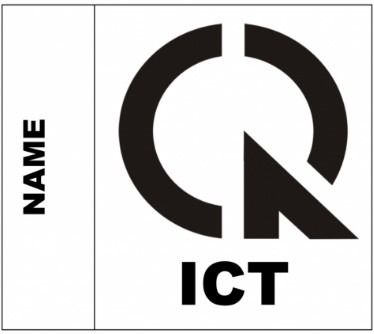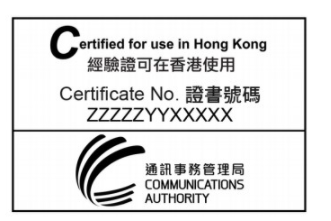Sri Lanka: Summary of TRCSL approval process
TRCSL Radio Type Approval is mandatory for the commercialization of telecom and radio equipment in Sri Lanka. Approval is regulated by the national authority, the Telecommunications Regulatory Commission of Sri Lanka (TRCSL). This type approval is comprised of various administrative steps, including obtaining a vendor license, submitting all technical documentation, submitting CE / FCC reports, samples, etc. An authorized importer is required and the validity of the TRCSL type approval is 3 years.
The TRCSL is the body in charge of providing the Type Approval Certification. First, the Authority will issue a Provisional Type Approval valid for 6 months. After that, the Full Type Approval will be issued. The technical file can contain CE/FCC Test Reports from an ISO/IEC 17025 Accredited Laboratory, however one normal sample is required for the TRCSL.
The process to obtain the TRCSL Approval typically takes 8 weeks.
TRCSL Label Requirements
The permit number issued with the TRCSL type approval should be displayed clearly on every piece of equipment in a permanent manner.

Vietnam: Summary of MIC approval process
The MIC (Ministry of Information and Communication of Vietnam) is responsible for determining the national technical standards that must be complied with in order to ensure proper functionality of the radio equipment that is intended to be marketed in Vietnam. At the same time, the VNTA (Vietnam Telecommunications Authority) is the Authority responsible for creating the processes required to obtain type approval.
According to Local Regulation, as stated in form TT11, Testing shall be performed at VNTA accredited laboratories and shall be carried out according to the test methods described in the corresponding technical standards issued by the MIC.
Foreign manufacturers can obtain the MIC Approval. The average lead time for obtaining the approval is 9 weeks.
MIC Label Requirements
A regulation conformity mark is a label that denotes the conformity of products with current MIC technical regulations. A Conformity Mark shall be placed on the product itself, the packaging or the user manual as follows:

Where:
- ICT: Abbreviated name in English for Information and Communications Technology.
- CODE: Management Code issued by the CB
- NAME: Name of the CB that deals with the MIC Approval
PAKISTAN: SUMMARY OF PTA APPROVAL PROCESS
Radio frequency transmitter products intended to be marketed in Pakistan that make use of the radio spectrum or connect to the public network are subject to a mandatory approval process issued by PTA.
The Pakistan telecommunication Authority (PTA) is a state owned enterprise responsible for the regulation, operation and maintenance of telecommunication services in Pakistan.
Pakistan’s compliance testing activities with Type Approval requirements are based on ETSI (EU) and/or FCC test reports. Additionally, the EU-Type Examination Certificate or the FCC Grant must also be part of the technical documentation submitted to PTA.
A Local Representative is required to hold the PTA Certificate of Conformity.
The PTA Certificate is indefinitely valid and the typical lead time to obtain approval is approximately 4 weeks.
PTA LABEL REQUIREMENTS
Once the PTA Certificate has been granted, a paper or electronic label must be affixed to the equipment. The PTA label must contain the following information:
- Unique Type approval number issued by PTA (TAC Number)
- Verifiable sign with the wording “Approved by PTA”
- The PTA Official Logo
The label must be affixed before the product is made available on the Pakistani market.
CAMBODIA: SUMMARY OF TRC APPROVAL PROCESS
Radio and telecommunications equipment intended to be marketed in Cambodia is subject to a mandatory approval process issued by the Telecommunication Regulator of Cambodia (TRC).
The Telecommunication Regulator of Cambodia (TRC) is a public legal entity with the objective of determining the relevant telecommunication regulations in order to ensure a proper functioning of the radio spectrum and network services in Cambodia.
Cambodia’s compliance testing activities for obtaining the Type Approval Certificate are based on RED and/or FCC test reports. Moreover, the EU-Type Examination Certificate or FCC Grant must be part of the technical documentation.
A Local Representative is required to hold the TRC Certificate of Conformity.
The TRC Certificate is indefinitely valid and the typical lead time to obtain approval is around 6 weeks.
TRC LABEL REQUIREMENTS
There are no product marking requirements for TRC Approval.
NEPAL: SUMMARY OF NTA APPROVAL PROCESS
Radio and telecommunication devices indented to be commercialized in Nepal that make use of the radio spectrum or connect to the public network are subject to a mandatory type approval process issued by the NTA.
The Nepal Telecommunications Authority (NTA) is responsible for regulating telecommunications and postal services in the country. NTA’s duty is to determine the rules and guidelines to be applied as well as ensuring their compliance in the country.
Nepal’s compliance testing activities with type approval requirements can be based on RED or FCC test reports. Additionally, an EU-Type Examination Certificate or an FCC Grant must also be part of the technical documentation submitted to the NTA.
Once the type approval process has been duly completed and accepted by the NTA, a provisional certificate valid for 6 months will be issued to the applicant. If, after 6 months, the NTA reviews the application and considers that the equipment meets the technical and regulatory requirements, a Permanent Period type approval certificate will be granted to the applicant.
A Local Representative is required to hold a Certificate of Approval issued by the NTA. The NTA’s Certificate is valid for 5 years and the overall approval process can take approximately 6 weeks.
NTA LABEL REQUIREMENTS
A clear, permanent and easily visible label with the following information shall be affixed on the equipment:
- Name of manufacturer and/or Brand Name or an authorized company responsible for importing
- Equipment Type or model
- Other markings expressing the Quality as decided by the Authority
FIJI: SUMMARY OF TAF APPROVAL PROCESS
Radio frequency transmitter and receiver products that make use of the radio spectrum (or connect to the public network) and are intended to be marketed in Fiji are subject to a mandatory Type Approval process issued by TAF.
TAF is the authority responsible for regulating telecommunications equipment by managing and anticipating possible conflicts between consumers, protecting their interests. They also own the assignment and control of the use of the radio spectrum and its frequencies.
There are no in-country specific technical requirements. The applicable requirements in Fiji are based on foreign approved certification schemes including FCC and EU-RED. The average lead time for obtaining the ARTEC Approval is 3 weeks.
TAF LABEL REQUIREMENTS
TAF has no labelling requirements for the Type Approval.
BHUTAN: SUMMARY OF BICMA APPROVAL PROCESS
The commercialization of telecom and radio equipment in Bhutan requires BICMA (Bhutan InfoComm and Media Authority) approval.
BICMA is a converged regulatory body responsible for the regulation of the Information, Communications and Media sector in Bhutan.
Bhutan’s compliance testing activities with Type Approval requirements are based on RED and/or FCC test reports. The certificate of approval, either the EU-Type Examination certificate or the FCC grant, must be part of the technical documentation submitted to BICMA.
The BICMA certificate is indefinitely valid and the typical lead time to obtain approval is approximately 4 weeks.
BICMA LABEL REQUIREMENTS
There are specific product marking requirements for BICMA Type Approval. Type approved equipment should be affixed with one of the following valid, authority-confirmed labels:

HONG KONG: SUMMARY OF OFCA APPROVAL PROCESS
The OFCA (Office of the Communications Authority) operates the Hong Kong Telecommunications Equipment Evaluation and Certification (HKTEC) Scheme for the evaluation and certification of telecommunications and radio equipment. The OFCA is the National Authority in Hong Kong.
OFCA Approval is based on two schemes: the first is the Compulsory Certification (CCS), which covers products such as Citizen Band and Aeronautical Mobile Radio. The second is the Voluntary Certification Scope (VCS), which includes cellular Mobile equipment, Short Range Devices (SDR), and so on. Equipment under the VCS can be marketed or used in Hong Kong without a valid certification that demonstrates its compliance with the relevant technical specifications. However, manufacturers, suppliers and dealers must ensure that their equipment complies with the relevant technical specifications even if they do not apply for the certification.
In order to obtain the OFCA Approval, applicants need to apply to a Recognized CB, and all testing activities must take place at an Accredited ISO17025 Lab according to the OFCA Standards. The average lead time for obtaining the OFCA Approval is 8 weeks.
OFCA LABEL REQUIREMENTS
Product labelling according to the OFCA requirements is voluntary. However, manufacturers, suppliers and dealers are encouraged to place labels on their certified equipment for consumer guidance.
A label can be issued as seen below and be placed on equipment that has been certified by a CB in compliance with the prescribed specifications:

It followed the following format guidelines:
- English text found in the upper portion: black and Arial font.
- Chinese text found in the upper portion: black and 中 黑 體.
- Border: black.